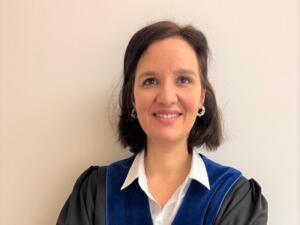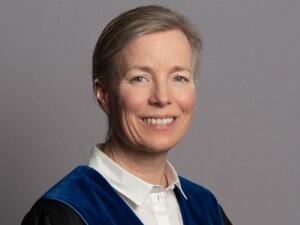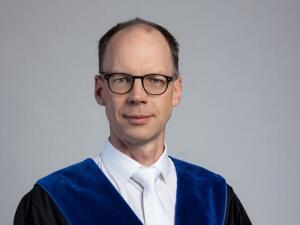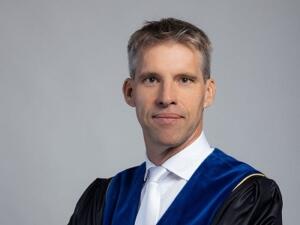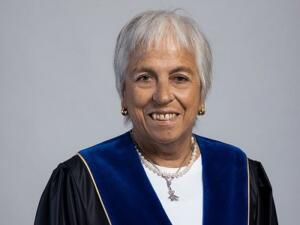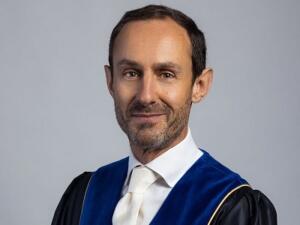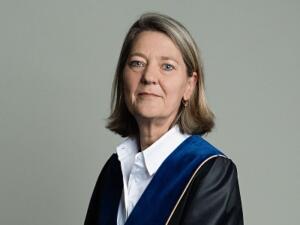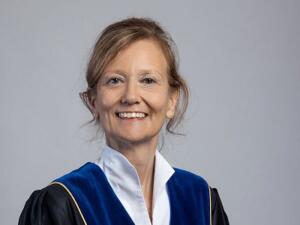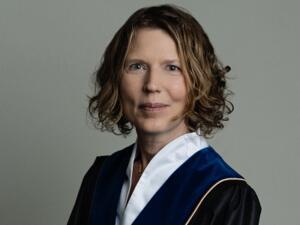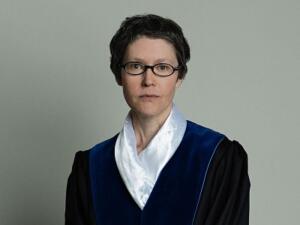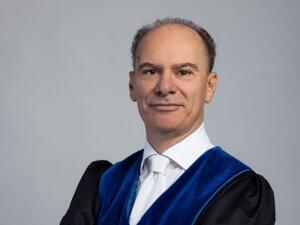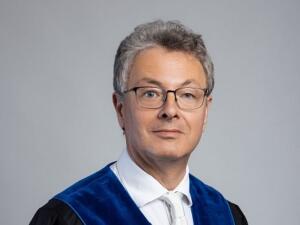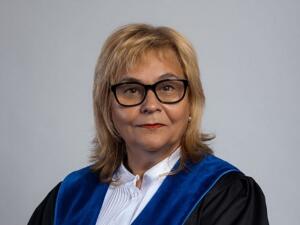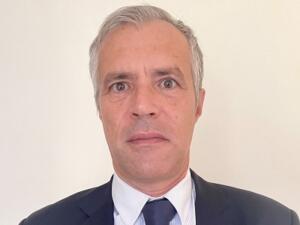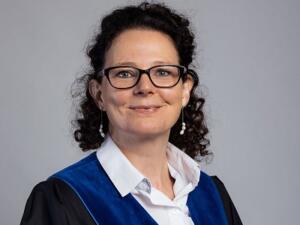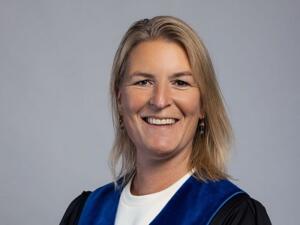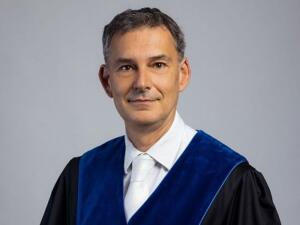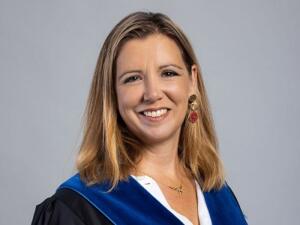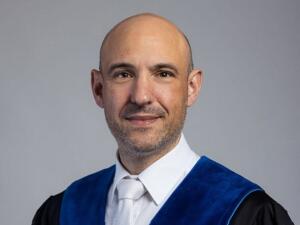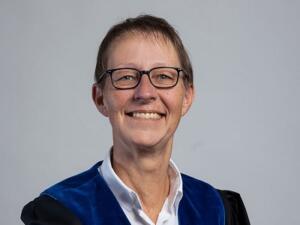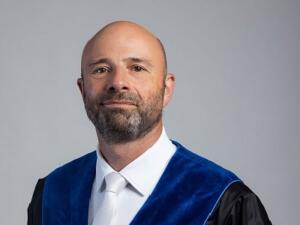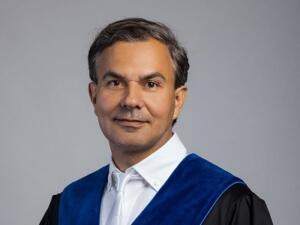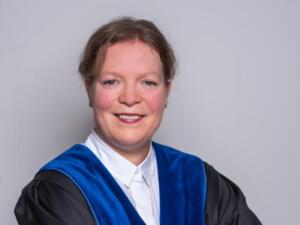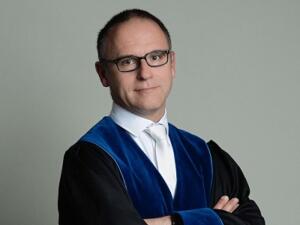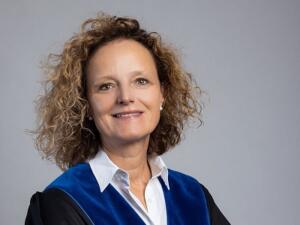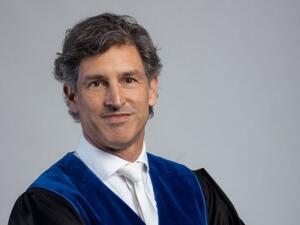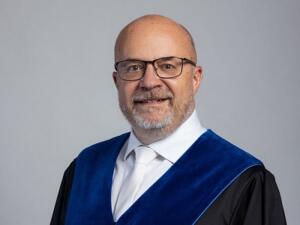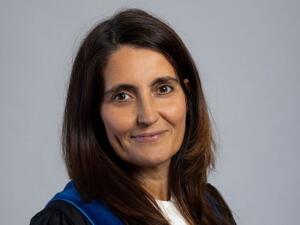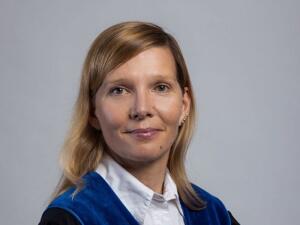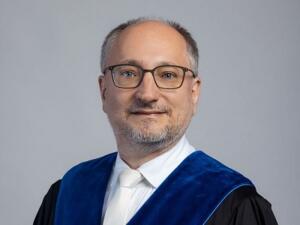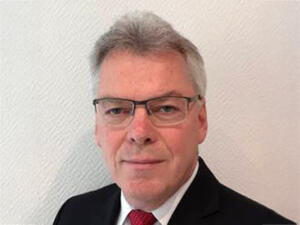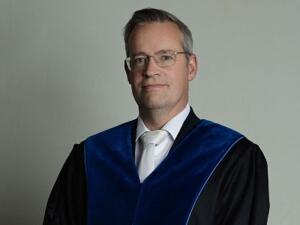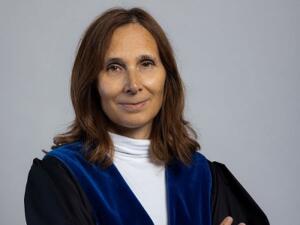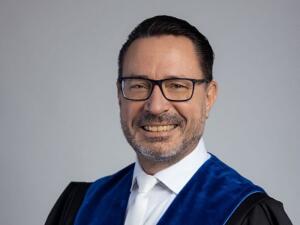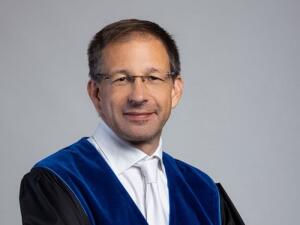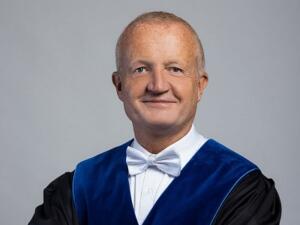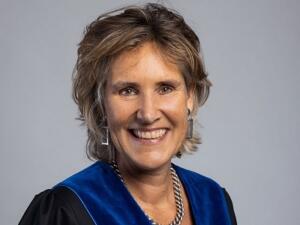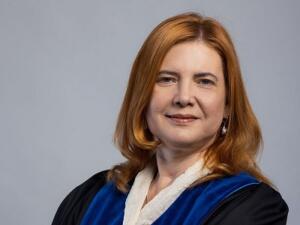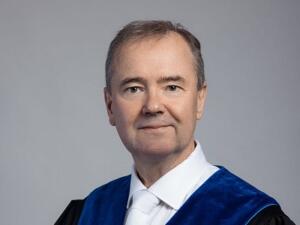An expanding court: The current capacities of UPC judges
How judges split their time between the UPC and national courts can influence where companies file their cases. As the UPC ramps up its capacities through new appointments and potentially establishing new panels, this topic is of increasing interest to the patent community. JUVE Patent has therefore compiled an overview of the capacities of all legally qualified UPC judges.
26 September 2025 by Mathieu Klos
The Unified Patent Court is set for growth this year. The court has already appointed six new technically qualified judges in 2025. Furthermore, Jule Schumacher and Marjolein Visser were appointed as legally qualified judges for the Düsseldorf local division and the Paris central division, respectively. More appointments are expected.
At the start of the year, the UPC announced its ranks would grow significantly. According to the UPC’s budget for 2025, officials will make funds available for 6.9 full-time equivalent judges (FTEs) for the Court of Appeal alone. The court of first instance will increase from 34.6 FTEs to 47.3 FTEs. It will achieve this through new hires like Schumacher and Visser, as well as by increasing existing part-time judges’ working hours.
The latter process is well underway. According to JUVE Patent research, judge Tobias Pichlmaier has worked full-time at the UPC’s Munich local division since February. Dirk Böttcher has also moved to the UPC in Mannheim full-time, as has Sabine Klepsch at the Hamburg local division. Other legally qualified judges have increased their UPC capacities without moving to full-time.
- Jule Schumacher
- Marjolein Visser
- Daniel Voß
In early July, Daniel Voß will move full-time to the Munich local division. Until then, he will continue to lead the patent litigation Chamber 4b with 50% capacity. Sources close to the Düsseldorf courts told JUVE Patent that the search for a successor and a restructuring of the three patent chambers is already underway.
A decisive factor
Most legally qualified judges’ current UPC working hours remain unknown. The patent community is keen to understand how judges split their time between the UPC and national courts, as this may influence where companies file suits.
Furthermore, when a judge moves to the UPC full-time, national courts must find replacements. In some cases, this could mean closing a chamber or senate at the national court.
Despite a high level of transparency regarding lawsuits, decisions and budgets, the UPC does not disclose judges’ working arrangements due to data protection regulations. JUVE Patent has therefore gathered market information and verified this information through multiple sources. The UPC declined to comment on these findings prior to publication.
100% UPC managers
Some judges’ working hours are public knowledge. Rian Kalden, Dutch chair of the 2nd Panel at the Court of Appeal, states in her official profile that she “left the Hague Appeal Court in September 2023 to become a full-time UPC judge”.
In September 2025, the Unified Patent Court itself announced via its LinkedIn account that French judge Carine Gillet is now a full-time judge. This made Paris the first local division outside Germany with judges who all work full-time for the UPC.
According to the latest budget, Klaus Grabinski, the court’s president, and Florence Butin, president of the court of first instance, also work full-time. Kalden, Butin and Grabinski sit on the seven-member presidium, all of whom work full-time. Ingeborg Simonsson from Sweden, Camille Lignières from France and German natives Ronny Thomas and Peter Tochtermann complete the management committee.

UPC presidium and its registrars, from left to right: Peter Tochtermann, Camille Lignières, Axel Jacobi, Alexander Ramsay, Florence Butin, Klaus Grabinski, Ingeborg Simonsson, Ronny Thomas, Rian Kalden ©Unified Patent Court
Two other full-time UPC staff working closely with the presidium are registrar Alexander Ramsay and deputy Axel Jacobi. Ramsay is Swedish and Jacobi is from Germany. Though not judges, they play crucial roles in court operations from the main seats in Luxembourg and Paris.
Court of Appeal
Like Klaus Grabinski and Rian Kalden, almost all Court of Appeal members likely work full-time. Emmanuel Gougé, for example, left his partnership at Pinsent Masons’ Paris office last year to join the Court of Appeal. Paris patent experts consider it unlikely he works part-time.
Only Dutch judge Peter Blok and Italian judge Emanuela Germano remain exceptions at the Court of Appeal. Blok continues as a professor at Utrecht University, while Germano also works at the Turin IP Court of Appeal.
Dutch judge András Kupecz also left private practice for the UPC. He now works full-time for the central division in Munich and as a foreign judge in numerous German first-instance cases.
An expanding court
The growth seen in early 2025 is set to accelerate and will likely include the establishment of additional panels. According to sources, the Advisory Board responsible for HR was recently busy reviewing applications from additional national judges and submitting recommendations to the Administrative Committee.
There has been speculation at several conferences that the UPC plans to establish a third Court of Appeal panel. The current six Court of Appeal judges face a heavy workload due to many unresolved fundamental issues. Many expect the Administrative Committee will vote on this in July. However, UPC officials have not confirmed this.
A third panel and the additional positions in the budget would mean promoting first-instance judges to the Court of Appeal, triggering further staff changes. New judges might also receive Court of Appeal appointments.
New panels at local divisions
Furthermore, high caseloads have also led the Munich and Düsseldorf local divisions to seek additional panels. According to insiders, the Administrative Committee may vote on a third panel for Munich in July. A third panel would mean appointing a third presiding judge alongside Matthias Zigann and Ulrike Voß.
In Düsseldorf, the planning to establish a second full panel with another presiding judge alongside Ronny Thomas is still in its early stages.
These new panels would bring more German judges to the UPC. Due to the high caseload, most German UPC judges already work full-time. However, there are some exceptions. Holger Kircher from the Mannheim local division works 80% for Mannheim Regional Court. Anna Lena Klein works 20% for the UPC and also serves as a judge at Munich Regional Court.
Stephan Schilling at the Hamburg local division and Jule Schumacher at the Düsseldorf local division each work 50% part-time for the UPC. However, sources close to both divisions indicate that they, too, will soon significantly increase their UPC capacity. Jule Schumacher currently works 50% as a member of the patent senate at the Düsseldorf Higher Regional Court. In September, she will move full-time to the UPC.
Because national courts must ensure that national case law is upheld, an immediate move is sometimes blocked by national courts. They do not always let their star judges go right away.
20% or 50% or somthing inbetween
An insider told JUVE Patent that, with very few exceptions, most judges work either 20%, 50% or 100% for the UPC. Judges from non-German divisions serving as foreign judges on cases at German local divisions face substantial travel across Europe in addition to the cases at their home divisions. These tend to work 50% for the UPC.
Amongst them are Dutch judges Edger Brinkman, Margot Kokke and Marije Knijff. But, according to sources, the plan is to increase their capacities signifincantly. This would very likely mean their departure from Dutch courts, which already face declining cases. National cases are also falling in Germany and elsewhere.
Judges at smaller divisions — Copenhagen, Ljubljana, Lisbon and Vienna — work less for the UPC and usually maintain national court duties. Some of them still only work 20% for the UPC. Others have increased their workload to 50% over the past two years.
Most judges at the central divisions in Paris, Milan and Munich also work part-time with capacity varying between 20% and 50%.
Part-time work is challenging
Judges see balancing national courts and UPC work, plus extensive travel, as challenging. “This is not sustainable in the long term,” one judge recently said at a conference.
A senior UPC judge told JUVE Patent that those willing and able to work full-time for the UPC can do so. However, not everyone wants this currently. Some national regulations also limit European court involvement. Danish judges for example must apparently work full-time for national courts. Peter Agergaard’s role as presiding judge at Copenhagen local division likely involves special arrangements and minimal UPC work, according to Danish lawyers.
All legally qualified judges and their capacities
Court of Appeal
First panel
- Klaus Grabinski – full-time; presiding judge and president of Court of Appeal; member of the presidium; Germany
- Peter Blok – part-time; also professor for IP law at Utrecht University; the Netherlands
- Emanuela Germano – part-time; also judge at Turin IP Court of Appeal; Italy
- Emmanuel Gougé – full-time; France
- Klaus Grabinski
- Peter Blok
- Emanuela Germano
- Emmanuel Gougé
Second panel
- Rian Kalden – full-time; presiding judge; member of the presidium; the Netherlands
- Patricia Rombach – full-time; Germany
- Ingeborg Simonsson – full-time; member of the presidium; Sweden
- Rian Kalden
- Patricia Rombach
- Ingeborg Simonsson
Courts of First Instance
Central division Paris
- Florence Butin – full-time; president of the court of first instance; member of the presidium; France
- Paolo Catallozzi – part-time; also judge at the Italian Supreme Court; Italy
- Maximilian Haedicke – part-time; also professor at the University of Freiburg; Germany
- François Thomas – part-time; also judge at the French Supreme Court; France
- Marjolein Visser – part-time; also judge at the District Court The Hague; the Netherlands
- Tatyana Zhilova – part-time; also judge at the Administrative Court Sofia; Bulgaria
- Florence Butin
- Paolo Catallozzi
- Maximilian Haedicke
- Tatyana Zhilova
Central division Milan
- Anna-Lena Klein – part-time; also judge at Munich Regional Court; Germany
- Marije Knijff – part-time; also judge at the District Court The Hague; the Netherlands
- Andrea Postiglione – part-time; presiding judge: also deputy Advocate General at the Supreme Court of Cassation in Rome; Italy
- François Thomas
- Anna-Lena Klein
- Marije Knijff
- Andrea Postiglione
Central division Munich
- Mélanie Bessaud – part-time; also conseiller référendaire at the French Supreme Court; France
- András Kupecz – full-time; the Netherlands
- Ulrike Voß – full-time; presiding judge (also local divsion Munich); Germany
- Mélanie Bessaud
- András Kupecz
- Ulrike Voß
Local division Brussels
- Samuel Granata– part-time; presiding judge; also judge at the Court of Appeal Antwerp and Benelux Court of Justice; Belgium
Local division Copenhagen
- Peter Agergaard – part-time; presiding judge; also judge at the Maritime and Commercial High Court; Denmark
Local division Düsseldorf
- Jule Schumacher – full-time; Germany*
- Bérénice Thom– full-time; Germany
- Ronny Thomas – full-time; presiding judge; member of the presidium; Germany
- Samuel Granata
- Peter Agergaard
- Bérénice Thom
- Jule Schumacher
- Ronny Thomas
- Sabine Klepsch
- Stefan Schilling
- Petri Rinkinen
Local division Hamburg
- Sabine Klepsch – full-time; presiding judge; Germany
- Stefan Schilling – part-time; also judge at Hamburg Higher Regional Court; Germany
Local division Helsinki
- Petri Rinkinen – part-time; presiding judge; also judge at the Market Court Helsinki; Finland
Local division Lisbon
- Rute Lopes – part-time; presiding judge; also judge at the Commerce Court of Sintra; Portugal
Local division Ljubljana
- Mojca Mlakar – part-time; presiding judge; also judge at the District Court Ljubljana; Slovenia
- Rute Lopes
- Mojca Mlakar
- Dirk Böttcher
- Holger Kircher
Local division Mannheim
- Dirk Böttcher – full-time; Germany
- Tobias Sender – full-time; Germany
- Peter Tochtermann – full-time; presiding judge; member of the presidium; Germany
- Peter Tochtermann
- Pierluigi Perrotti
- Alima Zana
Local division Milan
- Pierluigi Perrotti– part-time; presiding judge; also judge at the District Court Milan; Italy
- Alima Zana – part-time; also judge at the District Court Milan; Italy
Local division Munich
First panel
- Tobias Pichlmaier – full-time; Germany
- Matthias Zigann – full-time; presiding judge; Germany
Second panel
- Daniel Voß – full-time; Germany**
- Ulrike Voß – full-time; presiding judge (also central division Munich); Germany
- Matthias Zigann
- Tobias Pichlmaier
- Carine Gillet
Local division Paris
- Carine Gillet – part-time; also judge at the Court of Appeal Douai; France
- Camille Lignières – full-time; presiding judge; member of the presidium; France
- Camille Lignières
- Edger Brinkman
- Margot Kokke
Local division The Hague
- Edger Brinkman – part-time; presiding judge; also judge at the District Court The Hague; the Netherlands
- Margot Kokke – part-time; also judge at the District Court The Hague; the Netherlands
- Walter Schober
- Kai Härmand
- Stefan Johansson
Local division Vienna
- Walter Schober – part-time; presiding judge; also judge at the Higher Regional Court Vienna; Austria
Nordic-Baltic regional division (EE, LT, LV, SE)
- Kai Härmand – part-time; also judge at the Harju County Court, Tallinn; Estonia
- Stefan Johansson – part-time; presiding judge; also judge at the Stockholm City Court; Sweden
*from September 2025; **from 1 July 2025
